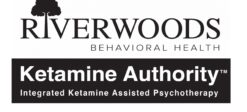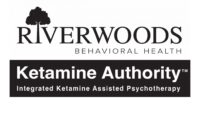
As we've come across numerous methods aimed at mending the fragments of one's past, it's intriguing how ketamine therapy sessions have emerged as a beacon of hope for healing the inner child.
We've found that this innovative approach not only offers a new perspective on personal growth but also poses questions about the depths of our subconscious mind.
By preparing for our first session, we're stepping into a realm that promises to unveil the layers of our psyche, potentially leading to profound transformations.
The journey ahead is both mysterious and enticing, urging us to explore the uncharted territories of our inner selves.
Understanding Inner Child Concepts
To grasp the concept of the inner child, it's essential to understand it represents our emotions, memories, and experiences from childhood that shape our adult behaviors and responses. This inner child lives within all of us, often hidden beneath layers of adult responsibilities and societal expectations. It's the part of us that holds our capacity for joy, creativity, and wonder, but also our fears, traumas, and unmet needs from those formative years.
We've come to recognize that acknowledging and nurturing this aspect of ourselves is crucial for emotional healing and personal growth. It's not about dwelling in the past but rather understanding how our childhood has influenced our current self. By connecting with our inner child, we can uncover the root of many behavioral patterns and emotional responses that puzzle us in our adult lives. This process involves revisiting past experiences with compassion and empathy, allowing us to heal old wounds and move forward with a greater sense of wholeness and self-awareness.
Embracing our inner child is a journey towards understanding the complexity of our emotions and behaviors. It's a step towards healing, offering us a pathway to reconcile with our past and embrace a more fulfilled life.
The Role of Ketamine in Healing
Understanding the profound impact our inner child has on our adult lives, we now explore how ketamine therapy sessions offer a novel approach to healing these deep-seated emotional wounds. By directly affecting the brain's ability to rewire itself, ketamine fosters an environment conducive to introspection and emotional healing. It's not just about numbing the pain; it's about confronting it in a space where one feels safe and supported.
We've found that ketamine's role goes beyond mere symptom relief. It acts as a catalyst for growth, encouraging individuals to revisit and reframe past traumas from a place of strength rather than vulnerability. This psychedelic-assisted journey allows one to access parts of the mind typically walled off by defense mechanisms, facilitating a profound connection with the inner child.
Moreover, ketamine therapy sessions help in breaking down the barriers of resistance that often hinder therapy's progress. By temporarily disarming these defenses, individuals can engage more openly and honestly with their emotions, leading to breakthroughs that might take much longer through conventional therapy alone.
We're witnessing a shift in how we approach mental health and healing, with ketamine playing a pivotal role in this transformation. It's not just about healing the wounds of the past; it's about unlocking the potential for a healthier, more integrated self.
Preparing for Your First Session
Embarking on your first ketamine therapy session requires thoughtful preparation to maximize its benefits and ensure a comfortable experience. We've gathered some essential steps to help us get ready.
First, we'll need to have an open and honest discussion with our healthcare provider. It's crucial to share our medical history, current medications, and any concerns or questions we might have. This conversation ensures the therapy is tailored to our needs and safe for us to undergo.
We're also advised to arrange for a trusted friend or family member to accompany us or provide transportation. Since the effects of ketamine can make driving unsafe immediately after a session, having support is essential.
Preparing our mind and body is just as important. We should aim to get a good night's sleep before the session and eat a light meal a few hours prior. Staying hydrated helps, but we'll avoid alcohol and caffeine on the day of our session.
Lastly, setting intentions can be powerful. We'll spend some time reflecting on what we hope to achieve through this therapy, whether it's healing from past trauma or gaining a deeper understanding of ourselves. This mindset can guide our journey towards healing.
Navigating the Therapy Process
Once we step into the therapy room, it's crucial we fully engage with the process to maximize the healing potential of ketamine therapy. This means opening ourselves up to the experience, being honest with our therapist, and actively participating in discussions. We've prepared for this moment, understanding the groundwork laid in our first session is just the beginning.
During the sessions, we'll encounter a range of emotions, memories, and insights. It's vital we allow these experiences to surface without judgement. The therapist is there to guide us, offering support and helping us navigate through the more challenging aspects of our journey. We remind ourselves that it's a safe space, designed for our healing.
We'll also learn to communicate what we're feeling and seeing, even if it seems nonsensical or difficult to articulate. This communication is key to our progress, helping the therapist understand where we're in our journey and how best to support us.
After each session, we take time to rest and reflect, knowing that the process of healing isn't just about the time spent in the therapy room but also about how we integrate these experiences into our daily lives.
Integrating Insights and Healing
As we step outside the therapy room, it's crucial we begin to weave the insights and healing into the fabric of our everyday lives. Ketamine therapy sessions offer profound moments of clarity and emotional release, but the true test comes in applying these revelations when we're back in our daily routines. We've found it helpful to keep a journal, noting down the moments of insight and the emotions they evoke. This practice allows us to revisit and reflect on these insights, ensuring they don't fade into the background noise of our lives.
We also prioritize setting aside time for meditation and mindfulness practices. Engaging in these activities helps us maintain a connection to our inner selves, facilitating a smoother integration of the therapy's effects. Moreover, we've learned the importance of open communication with our support network. Sharing our experiences and the changes we're striving to make not only holds us accountable but also strengthens our relationships, creating a supportive environment for our healing journey.
Adopting these practices has made a significant difference in our lives. It's not just about the moments within the therapy sessions; it's about how we carry forward the healing and insights into every aspect of our lives, fostering continuous growth and healing.
Long-Term Benefits and Considerations
What're the long-term benefits and considerations of integrating ketamine therapy sessions into our healing journey? As we delve into this question, it's crucial to recognize the profound impact ketamine therapy can have on our emotional and psychological well-being over time.
One of the primary long-term benefits we've observed is the sustained relief from symptoms of depression and anxiety. Many of us experience a significant reduction in these symptoms, allowing us to engage more fully with life and our healing processes. Additionally, the insights gained during sessions often lead to lasting changes in our behavior and thought patterns, fostering a deeper connection with our inner selves.
However, it's also important to consider the potential for dependence and the necessity of ongoing therapy sessions to maintain these benefits. We've found that combining ketamine therapy with other forms of therapy, such as cognitive-behavioral therapy or mindfulness practices, can help mitigate these concerns and enhance the long-term positive outcomes.
Frequently Asked Questions
Can Ketamine Therapy for Inner Child Healing Interfere With My Current Medication Regime, Especially Antidepressants or Anxiety Medications?
We're wondering if pursuing a new therapy could mess with our existing medication routine, especially since some of us are on antidepressants or anxiety meds. It's crucial we check in with our healthcare providers before diving in.
They'll know if there's any risk of interactions that could set us back. Let's make sure we're moving forward safely, keeping our mental health journey on track without any unexpected hurdles.
How Does One Measure the Success or Progress of Inner Child Healing Through Ketamine Therapy, Given Its Subjective Nature?
We're curious about how we can gauge the success of our emotional healing journey, especially when it's something as personal as inner child work.
Since it's a subjective experience, we're looking into ways to measure progress, even when traditional markers mightn't apply.
We're exploring how our feelings, behaviors, and thoughts change over time as indicators of healing, hoping to find tangible signs that we're moving forward on this path.
Are There Specific Age Restrictions or Considerations for Individuals Seeking Ketamine Therapy for Inner Child Healing?
We've been wondering if there are any age restrictions or special considerations for those seeking this type of therapy. It's crucial to know who's eligible and if there are any specific guidelines to follow.
Since everyone's journey is different, understanding these parameters could really help tailor the experience to each individual's needs. We're keen to ensure it's accessible to those who could benefit most, within safe and appropriate boundaries.
How Do Legal Regulations Impact Access to Ketamine Therapy Sessions for Inner Child Healing Across Different States or Countries?
We've noticed that legal regulations greatly affect our access to ketamine therapy sessions. Different states and countries have varying laws, which can either restrict or permit such treatments. This inconsistency makes it challenging for us to find reliable and legal therapy options.
It's essential we stay informed about the legal landscape to navigate our options properly. Understanding these regulations ensures we can seek the therapeutic support we need without facing legal issues.
What Are the Ethical Considerations and Potential Criticisms Surrounding the Use of Ketamine Therapy for Inner Child Healing?
We're delving into the ethical considerations and criticisms of using ketamine therapy. Some argue it's a groundbreaking approach to mental health, while others worry about dependency and the long-term effects.
There's also a debate on whether it truly addresses the root causes of trauma or merely offers temporary relief. We're keen to explore how these concerns impact the therapy's legitimacy and what safeguards are in place to protect patients.
Conclusion
In wrapping up, we've discovered the transformative power of ketamine therapy in healing our inner child. By preparing ourselves, actively engaging in the process, and integrating our insights, we're stepping into a brighter, more healed version of ourselves.
The journey's had its challenges, but the long-term benefits—enhanced self-understanding, emotional healing, and personal growth—have made every step worth it.
Let's continue nurturing our inner child, embracing the profound changes that come with this unique therapeutic journey.

